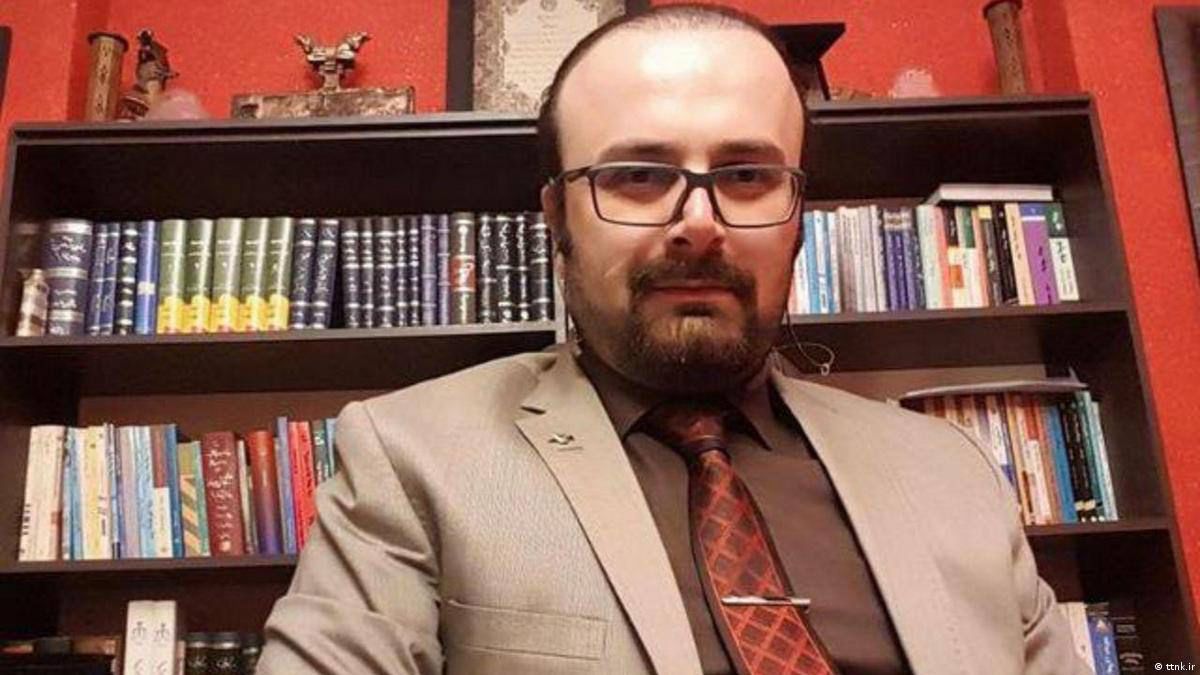(Beirut) – Horrifying details of the mistreatment of Payam Derafshan, a respected human rights lawyer by the Iranian authorities, highlight the central role Iranian intelligence agencies play in suppressing human rights activism, Human Rights Watch said today. The Iranian authorities should investigate this serious abuse immediately and transparently and bring those responsible to justice.
On October 17, 2021, Iranian attorney Saeed Dehghan tweeted a detailed report of the ill-treatment his colleague Payam Derafshan experienced while in custody by the IRGC’s intelligence agency, which Human Rights Watch independently confirmed. The group took Derafshan on the 7th. While Derafshan was detained, Dehghan said the authorities injected Derafshan with a substance that caused physical and mental harm.
“The heinous abuse and medical negligence by the authorities of a prominent human rights lawyer should make us extremely concerned about the situation of dozens of lesser-known political prisoners in Iran,” said Tara Sepehri Far, senior researcher on Iran at Human Rights Watch. “The authorities should immediately investigate the mistreatment against Payam Derafshan, prosecute anyone responsible, provide him with adequate redress and urgently investigate the spread of torture and abuse in prisons across the country.”
Derafshan has represented high profile human rights cases in Iran, including prominent lawyer Nasrin Sotoudeh and the family of Kavous Seyed Eammi, an Iranian-Canadian environmental activist who died in prison in February 2018 under suspicious circumstances. Authorities granted Derafshan a conditional release in September 2020.
Dehghan said that shortly after his arrest, Derafshan protested his solitary confinement, where the light in his cell was always on. Three officers then took him out of his cell and injected him with an unknown substance against his will. Derafshan was taken back to his cell where he suffered a severe spasm that resulted in him losing consciousness and biting off part of his tongue.
The next day, the authorities took him to Baghiatollah Hospital in Tehran, where he underwent tongue surgery and was admitted to the neurology department because of a disturbed perception of the surroundings. Before Derafshan completed his treatment, however, the authorities took him before Judge Mohammad Moghiseh in Section 28 of the Tehran Revolutionary Court to extend his detention order, which the judge did. The authorities then transferred him to Division 4 of the General Population Division of Evin Prison.
Dehghan said Derafshan had other side effects, including convulsions, and that authorities transferred him to a mental hospital where he received shock therapy that was reported to have caused brain damage.
During this time, Derafshan’s family was not informed of his whereabouts. They learned about his condition from other detainees in Ward 4 who had helped with the care of Derafshan.
On July 20, 2020, Dehghan reported that the Derafshan court acquitted him of “gathering and collusion against national security”, but acquitted him on charges of “acting against national security”, “propaganda against the state” and “promotion” among other things. An unauthorized taser was sentenced to two and a half years in prison, which an appeals court upheld. Authorities granted Derafshan a medical leave of absence in September 2020, and eventually a conditional release after a third of his sentence.
In the past three years, multiple incidents of potential negligence and lack of access to medical access for prisoners have caused serious harm. The authorities have also failed to investigate allegations of torture and ill-treatment in custody and have even prosecuted those who reported torture. According to Amnesty International, at least 72 people have died in custody in Iranian prisons since 2010 while authorities have been unable to answer despite credible reports of torture and ill-treatment.
On August 24, in response to apparently hacked videos showing abuse and abuse of prisoners, Mohammad Mehdi Haj Hosseini, the prison office director, apologized and pledged to investigate and prevent further violations. On August 30, Etemad Online reported that prosecutors reported, without further details, that six officers had been charged with misconduct.
Since 2018, the authorities have stepped up their repression against human rights lawyers, increasingly trying to prevent them from representing activists. Since August 14, authorities have arbitrarily arrested three prominent human rights defenders who wanted to lodge a complaint against Iranian authorities about mismanagement in the Covid-19 crisis.
Pursuant to Article 32 of the United Nations Minimum Standard Regulations for the Treatment of Prisoners, known as the Mandela Rules, “the relationship between the doctor or other health professional and the prisoner is governed by the same ethical and professional standards as for patients in the Community, in particular: (a) the duty to protect the physical and mental health of detainees and to prevent and treat diseases only on the basis of clinical reasons; (b) Compliance with the prisoners’ autonomy with regard to their own health and informed consent in the doctor-patient relationship. “
“The Iranian secret service, in close cooperation with the Revolutionary Court, has made the judicial system a cornerstone of repression, in which victims experience terrible abuse and have no opportunity to seek redress and accountability,” said Sepehri Far.












/cloudfront-us-east-2.images.arcpublishing.com/reuters/JEUL2B5V7BJCFMRTKGOS3ZSN4Y.jpg)



/cloudfront-us-east-2.images.arcpublishing.com/reuters/DYF5BFEE4JNPJLNCVUO65UKU6U.jpg)

/cloudfront-us-east-2.images.arcpublishing.com/reuters/UF7R3GWJGNMQBMFSDN7PJNRJ5Y.jpg)












